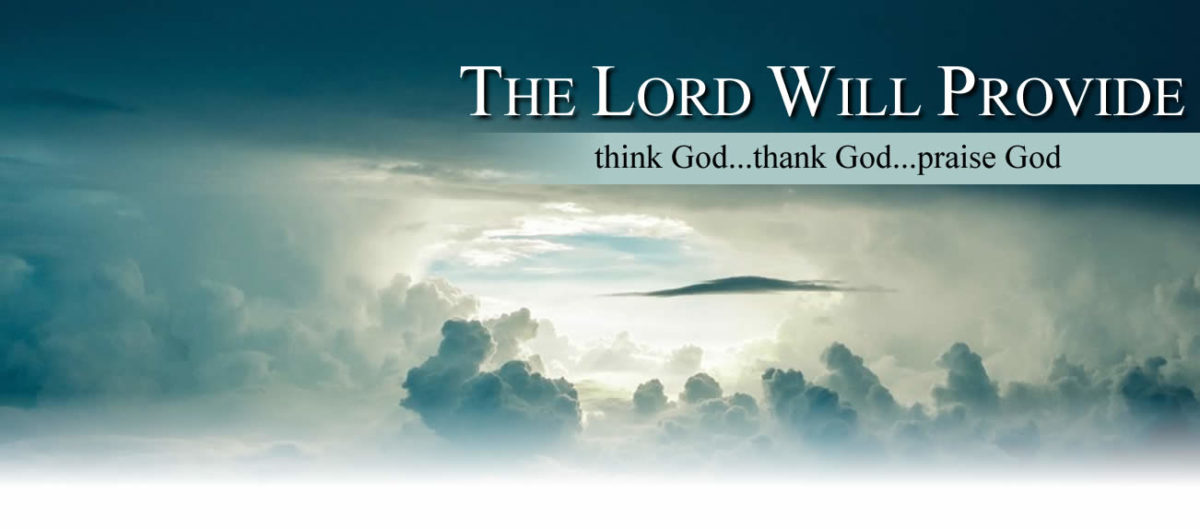13
1.Then Abram went up from Egypt, he and his wife and all that he had, and Lot with him, to the South. 11:31; 12:10
2. Abram was very rich in livestock, in silver, and in gold, 12:16
3. And he went on his journey from the south as far as Bethel, to the place where his tent had been at the beginning, between Bethel and Ai,
4. to the place of the altar which he had made there at first. And there Abram called on the name of the Lord. 4:26, 12:7, 8; 21:33; Ps. 116:17
So when Abram left out of Egypt he took all his possessions with him. Not only did he have livestock, and silver, and gold, but he also had servants, both male and female. This is where Hagar was given to Sarai as a maidservant. The Bible doesn’t say that Hagar was given to Sarai from the
Pharaoh, but there is strong evidence in Genesis chapter 16 that supports this. Chapter sixteen is where she is first introduced in the bible as Sarai’s Egyptian maidservant. And she will bare a son of Abrams who is to be named Ishmael. Abram went back to where he had been living before he left for Egypt because of the famine. There he began to call out to the Lord, in prayer and supplications. He was probably humbled by his misgivings in Egypt, and his lack of faith in the Lord. Abram can only go back to the one place where he felt close to God, and at peace with
himself because of this closeness. Abram remembers that this is the land that the Lord had promised him, so he cries out to the Lord: “forgive me for my lack of faith, I now know this is where you want me to be, and if you will still have me I will obey you with all my heart and soul”
obviously i’m assuming that this is what Abram was crying out to God. I’m just putting myself in Abrams shoes and thinking what I might have cried out to the Lord if it were me. I actually have had prayers similar to this in my times of trouble.
5. Lot also, who went with Abram, had flocks and herds
and tents.
6. Now the land was not able to support them, that they might dwell together, for their possessions were so great that they could not dwell together. 36:7
7. And there was strife between the herdsmen of Abram’s livestock and the herdsmen of Lot’s livestock. The Canaanites and the Perizzites then dwelt in the land. 10:15-19; 12:5, 6
8. So Abram said to Lot, “Please let there be no strife between you and me, and between my herdsmen and your herdsmen; for we are brethren.
9. “Is not the whole land before you? Please separate from me. If you take the left, then I will go to the right; or if you go to the right, then I will go to the left.”
10. And Lot lifted his eyes and saw all the plain of Jordan, that it was well watered everywhere (before the Lord destroyed Sodom and Gomorrah) like the garden of the Lord, like the land of Egypt as you go toward Zoar. 19:17-29
11. Then Lot chose for himself all the plain of Jordan, and Lot journeyed east. And they separated from each other.
12. Abram dwelt in the land of Canaan, and Lot dwelt in the cities of the plain and pitched his tent even as far as Sodom. 14:12; 19:1,24
13. But the men of Sodom were exceedingly wicked and sinful against the Lord. 6:11, 12; 18:20, 21; 19:24
Abram and Lot were so abundantly rich when they came
out of Egypt, that the land they now lived in was not able
to sustain all they had in livestock and people. After
Abram’s experiences in Egypt, he was humbled, and
learned to rely on the Lord and not in himself when it came
to times of trouble. Lot, who had been with Abram since
they first left the land of Ur, was aware of the promises
made to Abram by the Lord God. This being the case Abram
could have easily told Lot to leave the land promised to him
and dwell in a place far away from which they dwelt, and
Lot, who also worshipped the same God as Abram and
probably feared, and revered Him, would not have argued
with Abram on this matter. However, Abram has matured
since he first started following God, and has now learned to
have faith in the Lord and His promise He made to Abram.
With this faith Abram lets Lot chose where he would dwell
and Abram would go the other way. He tells Lot, “if you go
to the left, then I will go to the right, or if you go to the
right, then I will go to the left.”
There is also another character we see in Abram when it
comes to these verses. Abram is a peaceful man and not one
of covetousness who wishes to cause strife between him
and men. If more people, throughout the ages, would have
this character in themselves we would not have had all the
wars throughout history (Compare Jas 3:14-18, Jas 4:1-3). We see the difference in personalities between Lot and Abram. Lot sees all the richness of the plain of Jordan, described in verse ten as in the days of the Garden of Eden, Lot, out of his lust of covetousness, chooses the best lands for his people and all that he possesses. There is a lesson to
be learned here As well. There are two sayings that come to
mind, first;” be careful what you wish for,” the other is;”
The grass isn’t always as green as it appears” When we read
verse thirteen we are told that the men who live in the land
Lot chose are exceedingly wicked and sinful against the
Lord. As we will learn later on in Genesis, this decision
Lot makes will cost him dearly. Instead of calling on the
Lord for guidance, Lot relies on his own judgment just as
Abram did when he journeyed to Egypt, and he will have to
live with the consequences of his own lack of faith.
14. And the Lord said to Abram, after Lot had separated from him: “Lift up your eyes now and look from the place where you are-northward, southward, eastward, and westward;
15. “for all the land which you see I give to you and your descendants forever. 12:1; 34:4; acts 7:5
16. “And I will make your descendants as the dust of the earth; so that if a man could number the dust of the earth, then your descendants also could be numbered. 15:5; 22:17
(Compare Gen 15:5). Let me reference a few more scriptures from the New
Testament to backup what I feel is of significance concerning the kingdom of God (Compare Rom 4:11-13, 16-18, Gal 3:14, 3:26-29). I know I am beating a dead horse in the mouth here by quoting the same scriptures over and over, but we must understand the significance of Abraham’s life and how he lived it and it’s relevance to us in today’s world. Okay, now let me get to my point I am trying to make here. No man can number every particle of dust that is on the earth just as no man can count the stars. Think about it, just in our galaxy alone there are over 100 billion stars, Consider this, in the Hubble deep field image taken in 1995 there were about 300 Galaxies in this image. Scientist say that this is just a tiny fraction of galaxies that exist still that man has yet to discover. Now according to Henry M. Morris who has written a book called the Biblical Basis for Modern Science, and uses the Ussher chronology for mankind as a basis for his theory, he has come to the conclusion that there has been a total of between 20-30 billion people who have ever lived since the time of Adam and Eve. So in order for this promise to be fulfilled to Abram that his descendants will be as much as the stars or as the dust of the earth then mankind will still be pro creating during the kingdom of God and on. This gives me, and people like me who have never had children of their own for whatever reasons, hope to someday still have children. God promised that he would give us all things, and all our desires, and he cannot lie, and since we who have the faith of Abram, and are also his seed and joint heirs according to the promise, then I too will receive
this blessing.
17. “Arise, walk in the land through it’s length and its width, for I give it to you.”
18. Then Abram moved his tent, and went and dwelt by the terebinth trees of Mamre, which are in Hebron, and built an Altar there to the Lord. 12:7
Abram was sad to see Lot depart from him, for they had
been together for many years now, and Lot was as a son to
Abram, therefore the Lord told Abram “lift up your eyes” as
if to say “do not be saddened Abram for you and your seed
will be blessed. “Look all around at that which you see, I the
Lord God give you all the land in every direction forever
and ever. Not only will you possess this land forever, but
your seed will bear much fruit, So much so that no man can
number the descendants of your loins.” Abram is then told
by God to get up! And go out and survey the land which I
have given you. So Abram went out from between Bethel
and Ai and journeyed through all the land which was
promised him, and he finally settled in the southern portion
of the land, in Hebron, and there he built a third altar to the
Lord so as to worship him.
I’d like to take a step back and ponder what it might have
been like for Abram while he was traversing the land. What
was going through his mind? I can only do this by
wondering if it were me. Everyday must have been as
exciting as the last, contemplating, what was over the next
hill, or beyond the next valley? every step I take I would
be thinking, “will my sons settle here or there, or my
grandchildren; will they walk the same paths as me? and
think to themselves, “my father, grandfather, great
grandfather Abram once walked this path before me?” he
may have even mark his paths along the way etched in
stone, “Abram was here” hoping someday one of his
descendants would see his mark. And yet I also can’t help
but think of the correlation between Abrams journey way
back then and my own journey that I too am on, looking
forward to the promise not seen but hope for, and the faith
I have that someday I too will see the promised land.
The thoughts go through my mind “what will God’s
kingdom be like?” (Compare Rev 21:7). As my pastor often says; “I have yet to find anything that is not included in all things.” and I also know
that my mind can’t even fathom what the kingdom of God
will be like, whatever a person can imagine how God’s
kingdom will be, can be magnified a hundred-fold.

